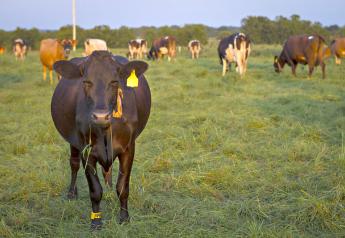Cattle Ticks Happen: Diagnosing, Treating and Controlling Clinical Anaplasmosis

Join Dr. Kathryn Reif, assistant professor in the Department of Diagnostic Medicine/ Pathobiology in the College of Veterinary Medicine at Kansas State University, as she discusses the growing threat of clinical anaplasmosis in cattle, along with a review of the disease, its diagnosis and clinical signs. Dr. Reif will also discuss testing options and offer recommendations for disease treatment and vector control.
This program has been approved for 1 hour of continuing education credit in jurisdictions that recognize RACE approval.
Click here to view this webinar on demand.







